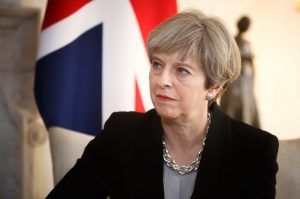Financial Power List 2019: 1-5 revealed
Our Financial Power List 2019 ranks the 50 individuals who we believe will make the biggest difference to the accountancy industry over the next 12 months
Our Financial Power List 2019 ranks the 50 individuals who we believe will make the biggest difference to the accountancy industry over the next 12 months
Compiled by the Accountancy Age editorial team, the Financial Power List 2019 ranks the 50 individuals who we believe will make the biggest difference in the accountancy industry over the next 12 months. Individuals considered for the list span government, practice and business. Their status or role does not guarantee their position in this ranking, but rather we have chosen individuals who we think will have an impact in one way or another based on what changes they are predicted to spearhead, whether that be in government policy, tax changes, regulation, firm growth, or industry diversity.
Make sure you check back to view the full rankings, which will be released on 15 February, with five individuals announced every day between now and then.
Here, we reveal the individuals who have made positions 1-5 on this year’s list.
 5. Jon Thompson, CEO, HMRC
5. Jon Thompson, CEO, HMRC
In April 2016, Jon Thompson was appointed as the CEO of HMRC. For the three years prior to this date, Thompson was the Permanent Secretary at the Ministry of Defence, and thus responsible for the likes of policy, finance, and planning.
Now, he is responsible for a government body with 45 million customers and 58,000 employees.
With Making Tax Digital coming into effect this year, and Brexit on the horizon, Thompson will be expected to ascertain that HMRC is prepared to handle the changes.
4. Mark Carney, Governor of the Bank of England
Mark Carney assumed the role of the Governor of the Bank of England in July 2013; previous experience involves working as Governor for the Bank of Canada.
Carney has agreed to serve as the Bank of England’s Governor until 31 January 2020—this means that he will be overseeing some big changes for the UK.
As the first vice-chair of the European Systemic Risk Board, Carney has plenty of experience in planning contingencies.

3. Brian Gilvary, Chair The 100 Group, CFO at BP
As chief financial officer of BP, Gilvary has focused on efficiency savings which have helped the oil giant ride out fluctuations in the oil price. As chair of The 100 Group, he will be heading up the group which acts as a voice for the finance community as it navigates the treacherous waters of Brexit this year.
On the agenda too will be reform to the audit market. The views of The 100 Group are not always made explicit, but Gilvary is expected to voice concern about the power to appoint auditors being taken away from company boards, and proposals such as joint audits, both possibilities if the recommendations of the Competition and Markets Authority review go ahead.
2. Philip Hammond, Chancellor of the Exchequer
As Chancellor of the Exchequer, Hammond heads up the Treasury and oversees the government’s fiscal and monetary policy.
Towards the end of 2018, Hammond delivered a Budget full of notable changes, including announcing a digital services tax on tech giants and the extension of IR35 to private organisations. He managed to stay very quiet on Brexit, except for allocating a further £500m for planning and preparations.
But in 2019, Fiscal Phil can’t hide from the B-word. Depending on the 29 March outcome, Hammond may have to deliver an emergency Budget in place of his Spring Statement. He is holding out that a deal will be made. Either way he has perhaps his most important year yet as Chancellor ahead.
1. Theresa May, Prime Minister

Home Secretary from 2010 to 2016, Theresa May took on the mantle of leader of the Conservative Party and Prime Minister of the United Kingdom in 2016.
Since then, her focus has of course been on negotiating the aftermath of the EU referendum called by previous Prime Minister, David Cameron. With the Brexit deadline growing ever closer, and continued discord and division in parliament, every choice May makes will be scrutinised; she will be the lynchpin that will ultimately determine which way Brexit negotiations will go, and the impact this will have on the UK economy.